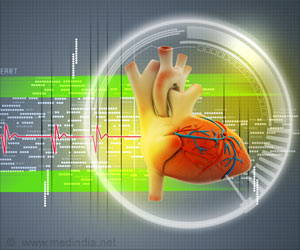Drinking high-fat milkshakes may increase the risk of heart disease. Scientists discovered new gene variants that change bad cholesterol and triglyceride levels.
- Drinking milkshakes may be associated with increased risk of heart disease
- Three genes impacted changes in bad cholesterol and triglyceride levels after consuming the milkshake
- High levels of cholesterol lead to the accumulation of fat deposits on the walls of arteries increasing the risk of heart attacks and stroke
The main objective of the study was to determine the role of genes that may
- influence the cholesterol levels after consuming high-fat meals
- affect the response to medication for lowering triglyceride and bad cholesterol
Atherosclerosis
High levels of cholesterol in the blood increase the accumulation of fat deposits to form a clog in the walls of the arteries, thereby increasing the risk of heart attacks and stroke. This process is known as atherosclerosis.
A high-fat diet and family history are common risk factors associated to increase the risk of developing heart disease.
Several scientists have earlier identified the genetic variants that affect lipid responses. In the present study, the medical geneticists wanted to discover new uncommon gene variant.
The GOLDN participants were asked to come with an empty stomach. In the lab, they were provided with a milkshake which is made from a thick whipped cream, flavored with chocolate or strawberry syrup and crushed ice. Over four-fifths of the calories in the meal was from fat.
The blood test to measure high-density lipoprotein (good cholesterol), low-density lipoprotein (bad cholesterol) and triglycerides was done before and after the meal.
The participants were prescribed with fenofibrate, a medication that can reduce cholesterol and triglyceride levels, for three weeks. After three weeks, the participants were again provided with a milkshake, and blood test was assessed. The scientists also sequenced all of the genes in the participants' blood cells and examined the gene expression level.
Until now, it was believed that the common genetic variants mainly cause the variability in people's triglyceride and cholesterol levels, said Degui Zhi, senior author from UTHSC at Houston. But, it was found that common genetic variants revealed less than a quarter of inherited variability in triglyceride levels. The study hypothesis is that at least some of the 48 percent of unexplained variability could be driven by rare genetic variants that occur in below 5 percent of the population.
Findings of the Study
The research team found variants of at least three genes that were not very common in the study population but did relate to lipid changes in the people who had them.
"We found that variants in one gene, called SIPA1L2, predicted triglyceride level changes after consuming the milkshake. Variants in another gene, ITGA7, predicted LDL-cholesterol level ("bad" cholesterol) changes after taking the drug. And variants in a third gene, CEP72, predicted triglyceride response when comparing the pre-fenofibrate milkshake experiment to the post-fenofibrate milkshake experiment," said Ryan Irvin, another collaborator from UAB.
The team of researchers said that their findings should encourage other scientists to conduct further research studies to find additional rare gene variants, including non-protein-coding DNA that fell outside the scope of this study. They also insist that their study population was not vast, the GOLDN participants are mostly white. By studying for rare variants in different populations may also set up additional benefits in discovering new genes.
"Future studies can begin where we left off by trying to uncover exactly how the metabolic pathways and mechanisms these genes are part of interacting with dietary fat and fenofibrate to change triglyceride and cholesterol levels. Armed with this knowledge, we will be one step closer to finding new ways to prevent and treat unhealthy triglyceride and cholesterol levels," said Donna Arnett, dean of the UK College of Public Health and the GOLDN principal investigator.
Reference:
- Xin Geng, Marguerite R. Irvin, Bertha Hidalgo, et al. An exome-wide sequencing study of lipid response to high-fat meal and fenofibrate in Caucasians from the GOLDN cohort, Journal of Lipid Research (2018)DOI: 10.1194/jlr.P080333
Source-Medindia
















